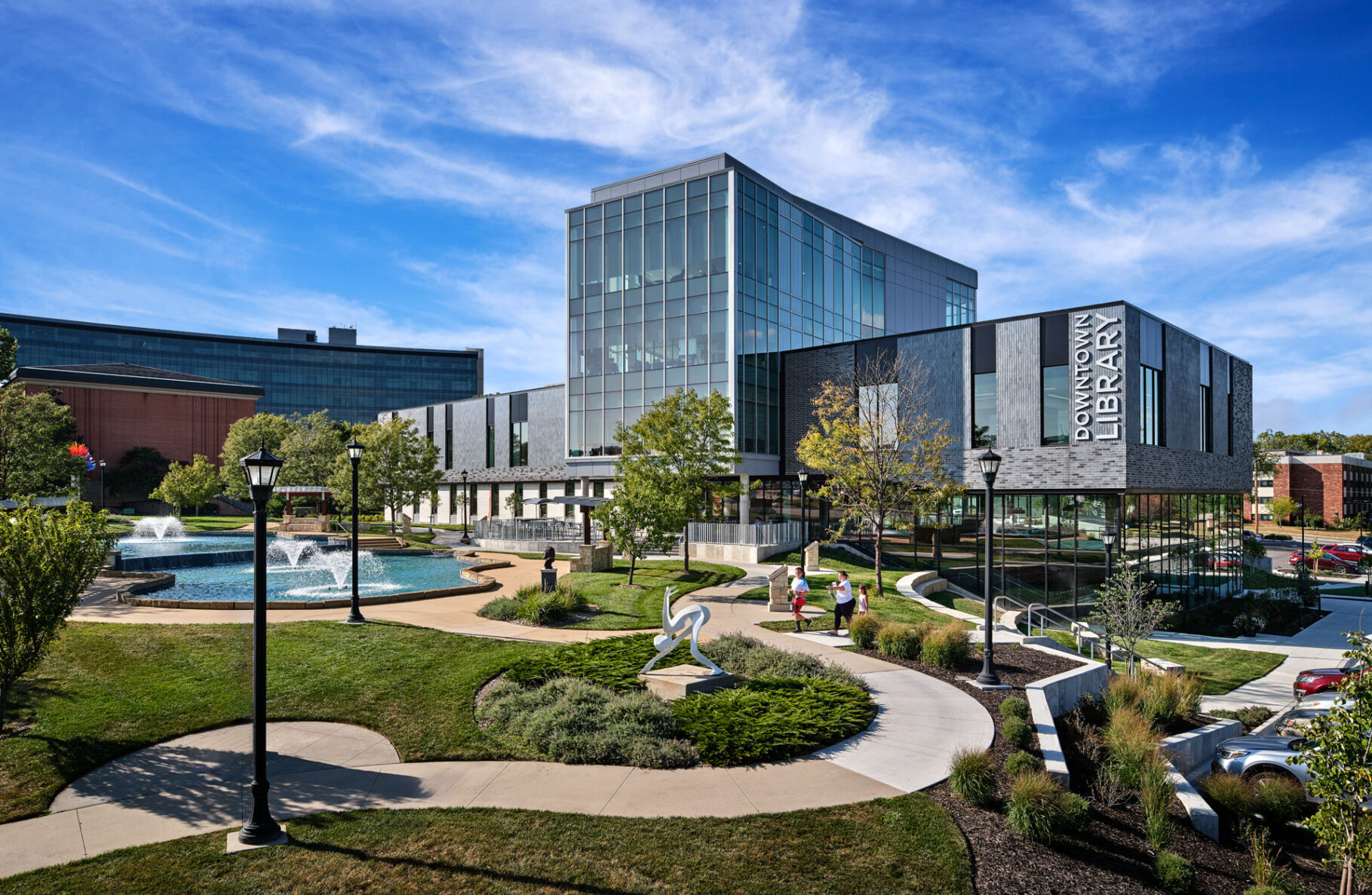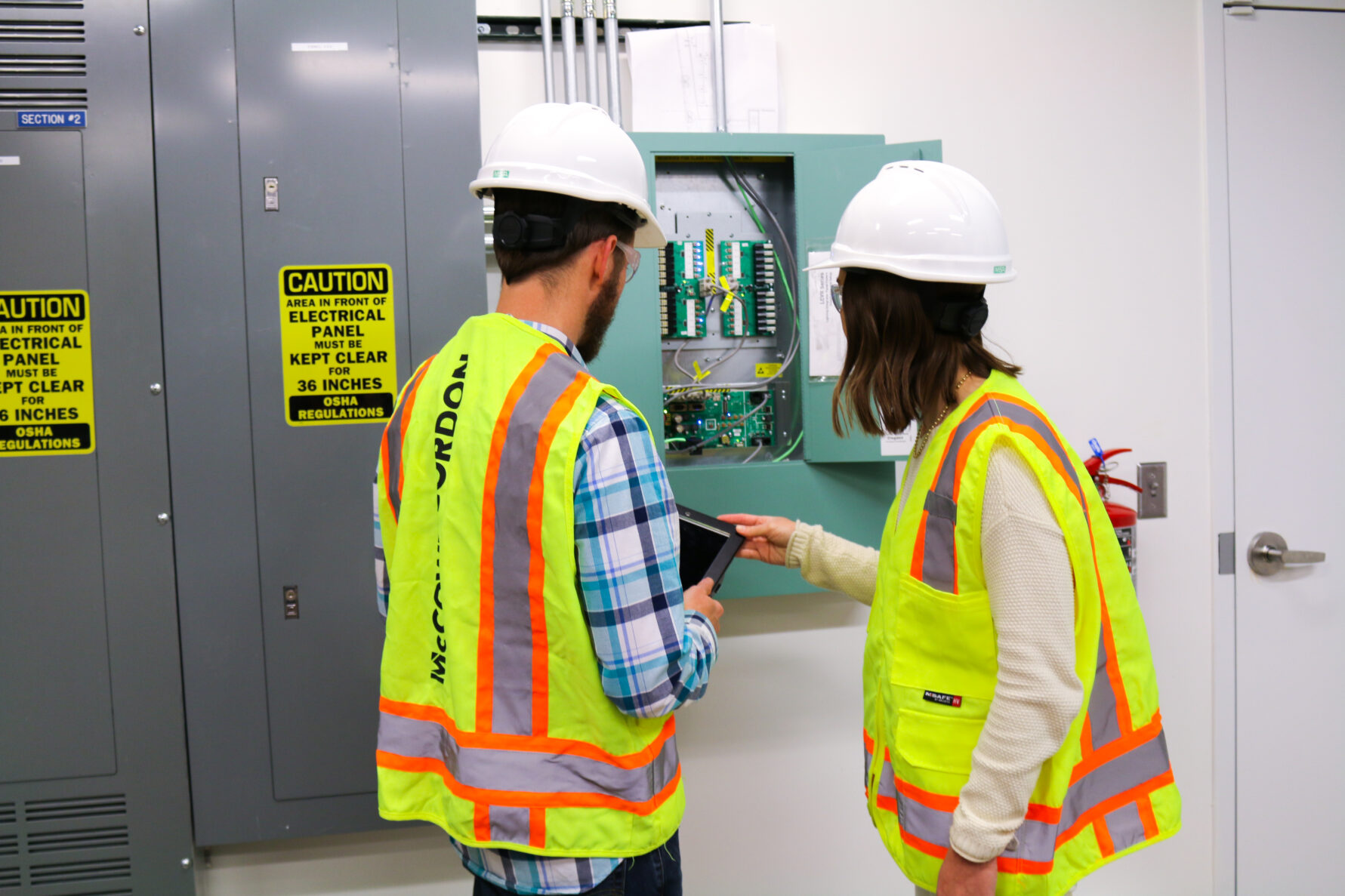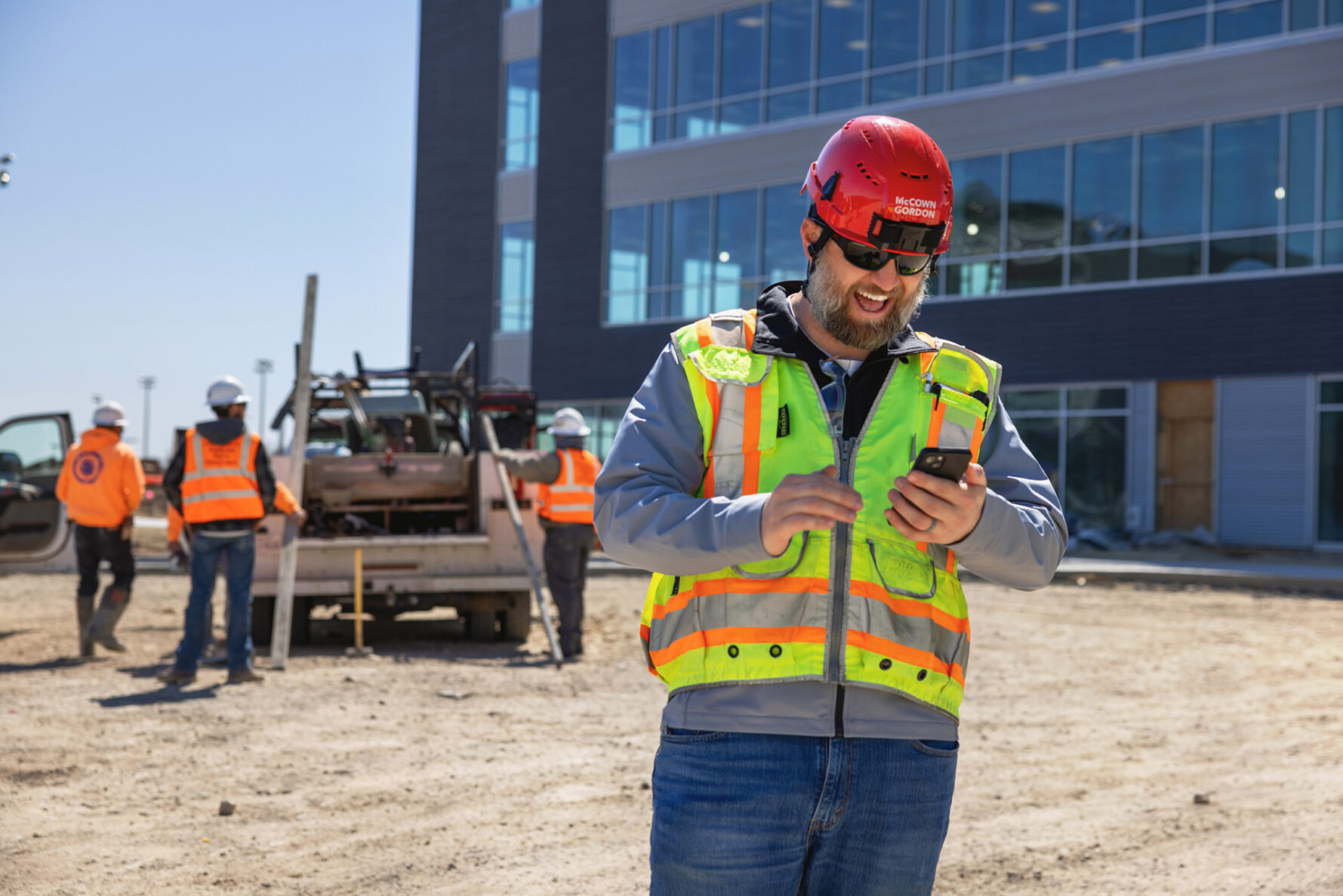Building an inclusive campus
Cowritten by Willy Pegues
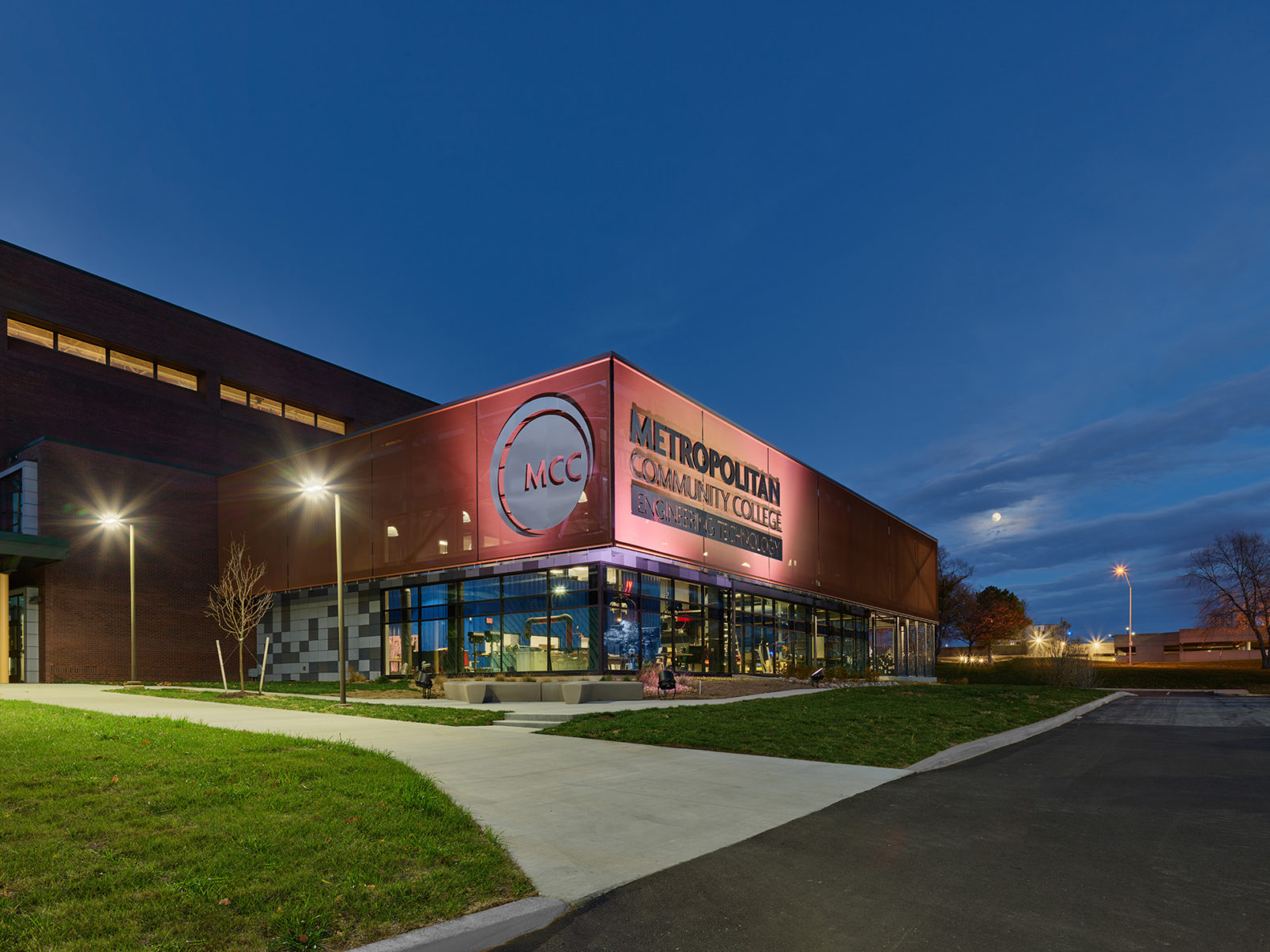
What is diversity, equity, and inclusion (DEI)?
Diversity represents the individual differences in identity group perspectives, experiences, skills, and talents that make up our organization.
Equity is a process acknowledging the existence of advantages and barriers and continuing to correct and address the imbalance for all individuals to be successful.
Inclusion embraces those differences which allows organizations to achieve a higher level of performance.
Overall, DEI provides a sense of belonging for everyone.
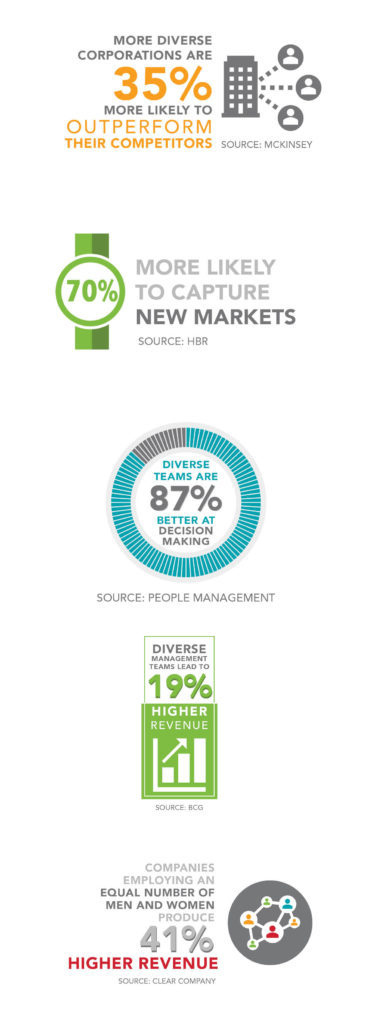
We seek to create a culture where different ideas and perspectives are embraced, and all backgrounds and experiences are welcomed, valued and accepted. McCownGordon understands some of the benefits DEI brings to an organization. Here are a few:
Corporations identified as more diverse and inclusive are 35% more likely to outperform their competitors. (McKinsey)
- Diverse companies are 70% more likely to capture new markets. (HBR)
- Diverse teams are 87% better at making decisions. (People Management)
- Diverse management teams lead to 19% higher revenue. (BCG)
- Companies employing an equal number of men and women manage to produce up to 41% higher revenue. (Clear Company)
- 74% of millennial employees believe their organization is more innovative when it has a culture of inclusion, and 47% actively look for diversity and inclusion when sizing up potential employers. (Deloitte)
- Millennials are 83% more likely to be engaged at work at inclusive companies. (Deloitte)
At McCownGordon, we regularly communicate to create an awareness of the value of DEI and engage groups and resources throughout the community to support our efforts. Internally, we promote an environment where our associates have access to the same treatment and opportunities, and the ability to reach their full potential.
How does this translate to a university campus?
According to US News, diverse college campuses offer more worldviews for students to consider and engage with. College students can learn from peers with different perspectives shaped by a variety of experiences. Today, this is more important than ever as colleges prepare students for a successful life. According to the Center for American Progress, people of color account for approximately 36% of the workforce. According to Census Bureau projections, by 2050 one in two workers will be a person of color. As our nation becomes more diverse, so too does our workforce.
When McCownGordon partners with a university client, we often find our shared values of DEI come together for the common good. One way our team can affect change is through encouraging and facilitating a high level of supplier diversity when building and renovating campus facilities.
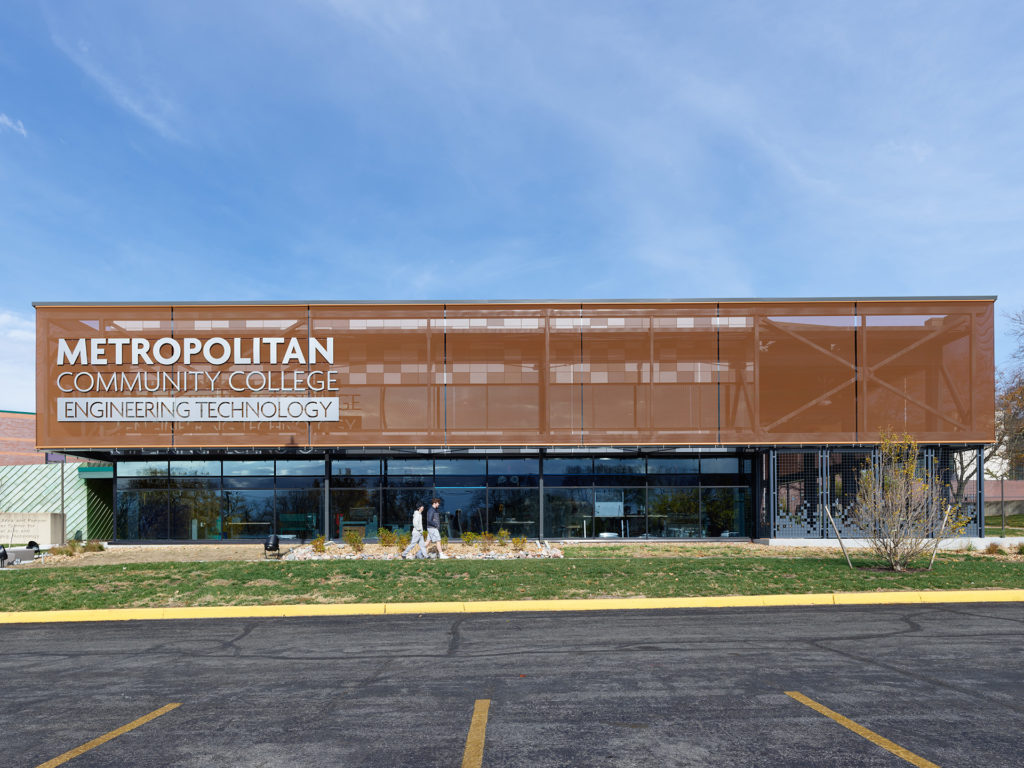
Case Study:
Metropolitan Community College (MCC) serves the Kansas City area with five campuses across the metro. McCownGordon was recently awarded three capital campaign projects to expand and reconfigure MCC’s campuses to make facilities more accessible for students.
With supplier diversity as a priority, MCC wanted to maximize participation on the $30 million projects. Ensuring the community that built the project was reflective of the community and the students it serves was a priority. The projects were not tied to any funding sources that required MBE/WBE goals, but as community stewards, the team set an internal goal in line with the City of Kansas City, Missouri MBE/WBE goals of 14.7% and 14.4%, respectively.
A strategic communications plan was imperative to distribute information about the projects, enhance excitement in the trade partner community and maximize the number of bids our team received. We quickly engaged Parson + Associates, a public relations firm rooted in the community, to help us map out the plan to maximize participation. The team developed a four-month plan that focused on communication, engagement, and follow-up, relying on our partnerships with local community organizations to help spread the word. This plan included:
Dedicated webpage: The website outlined key project information for trade partners: project scopes and timelines, pre-qualification steps, pre-solicitation meeting information, etc. The site reached more than 465 people where they spent a significant period of time researching information on the projects.
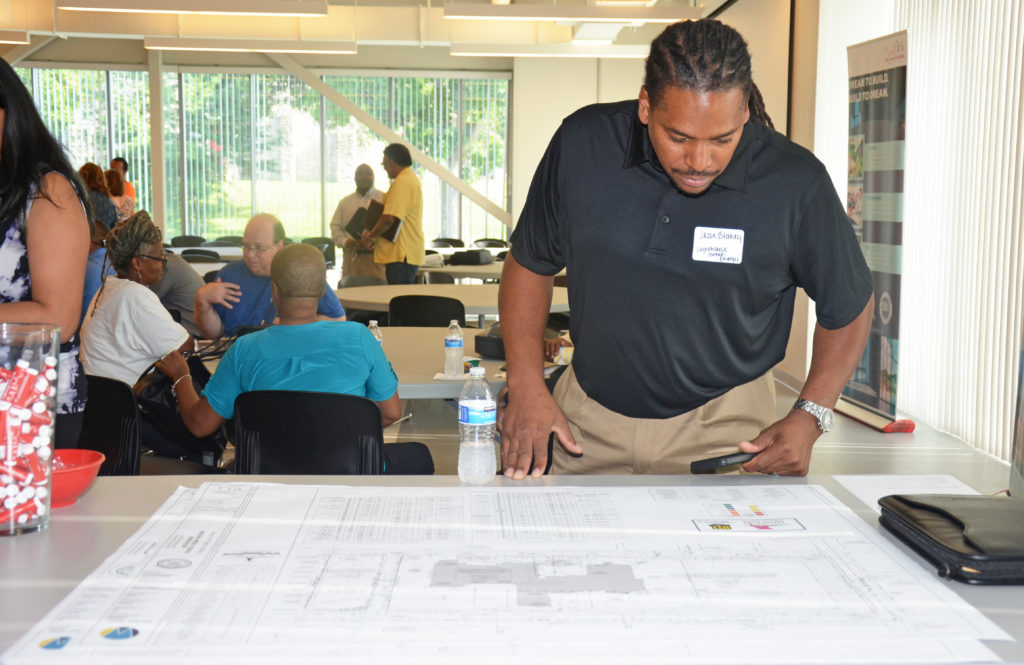
Supplier Diversity workshops: Meetings and workshops were critical for McCownGordon and diverse trade partners to share information on a one-on-one basis. The team held five virtual meetings and two in-person sessions to help trade partners understand the project and give
them an opportunity to ask questions. In addition to trade partners gaining information, these meetings were vital for the McCownGordon team to understand the capacity and capabilities of the firms preparing to bid. More than 140 people attended these meetings.
Craft bid packages: After the team had a clear understanding of the trade partner market’s strengths and capabilities, our preconstruction team began to craft the bid packages. Right-sizing—ensuring bid packages aren’t too big and aren’t too small—was a critical step. As an example, we could group the scopes for the sidewalks with the foundations or break them apart depending on the capacity limitations of the trade partners.
Call for bids: Once the packages were developed, it was time to send out the bid invitations. With a comprehensive ad campaign in local minority and bilingual publications such as Dos Mundos Bilingual Newspaper and the KC Call, the team placed four ads for each of the three projects to ensure the information was received. In an attempt to share the maximum amount of information and limit the need for questions, the team chose larger than typical ads to be as informative as possible. In addition, the team amplified the message on multiple social media channels including Twitter, Facebook and LinkedIn.
Follow up: After the call for bids, our preconstruction team called each contact to ensure they knew the call for bids had been issued, answered any questions and encouraged them to submit. The projects received 317 bids from MBE/WBE firms, a testament to the work the team did to get the word out.
Once bids were received and compiled, the team reviewed the submissions and hired all the low bidders (as usual). Because of the team’s strategic outreach, flexibility in bid packages, and dedicated follow though, the work performed by MBE/WBE firms made up 29% and 21% respectively. A total of 50% of the contracts were awarded to diverse suppliers.
McCownGordon is dedicated to partnering with clients with similar values so we can deliver successful projects. Our continued relationship with MCC and commitment to supplier diversity demonstrates our ability to help build an inclusive campus from the ground up.



